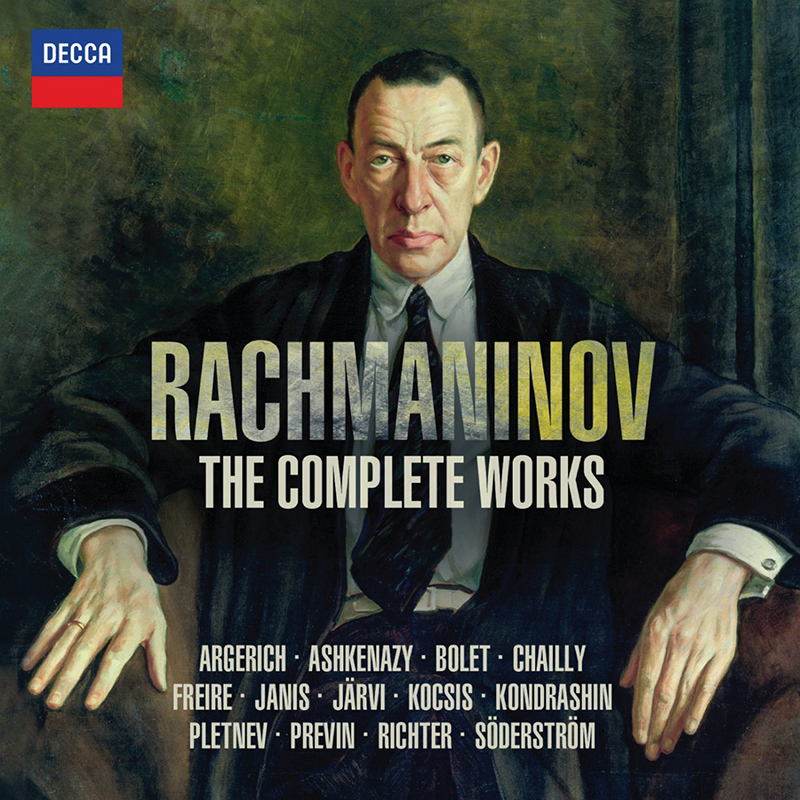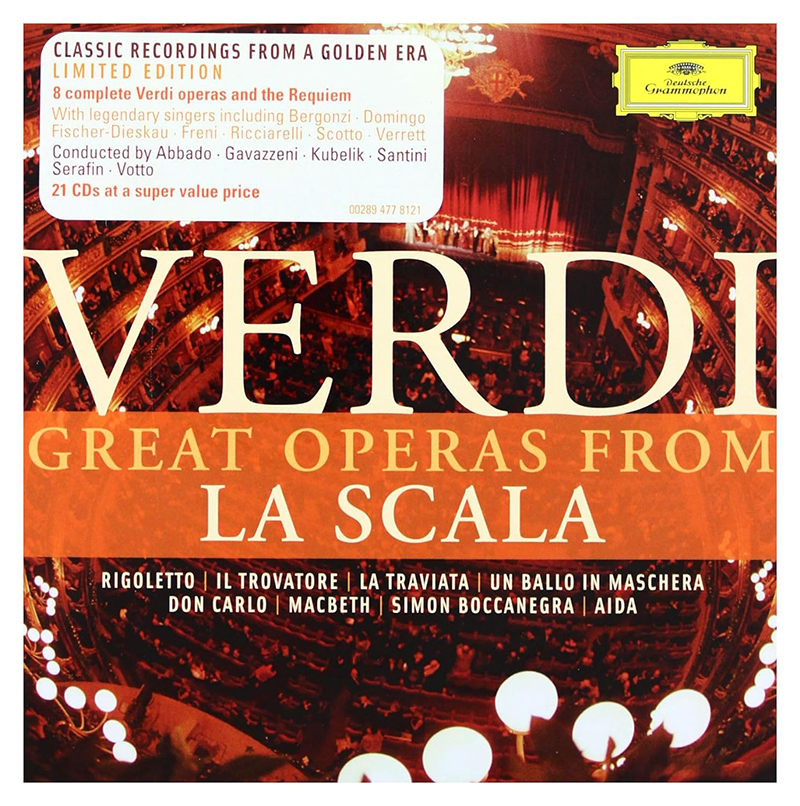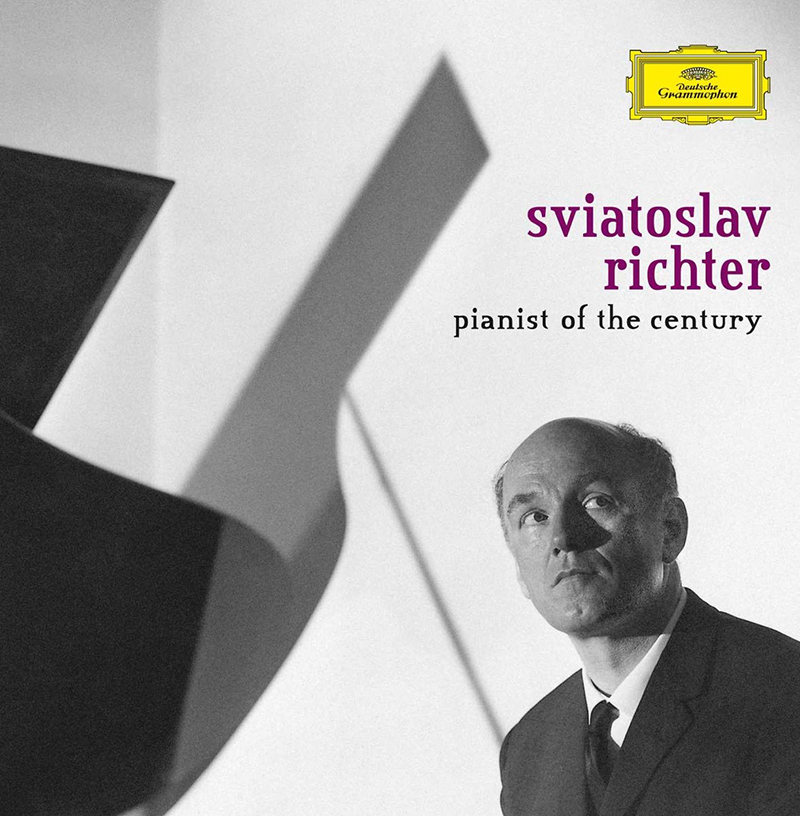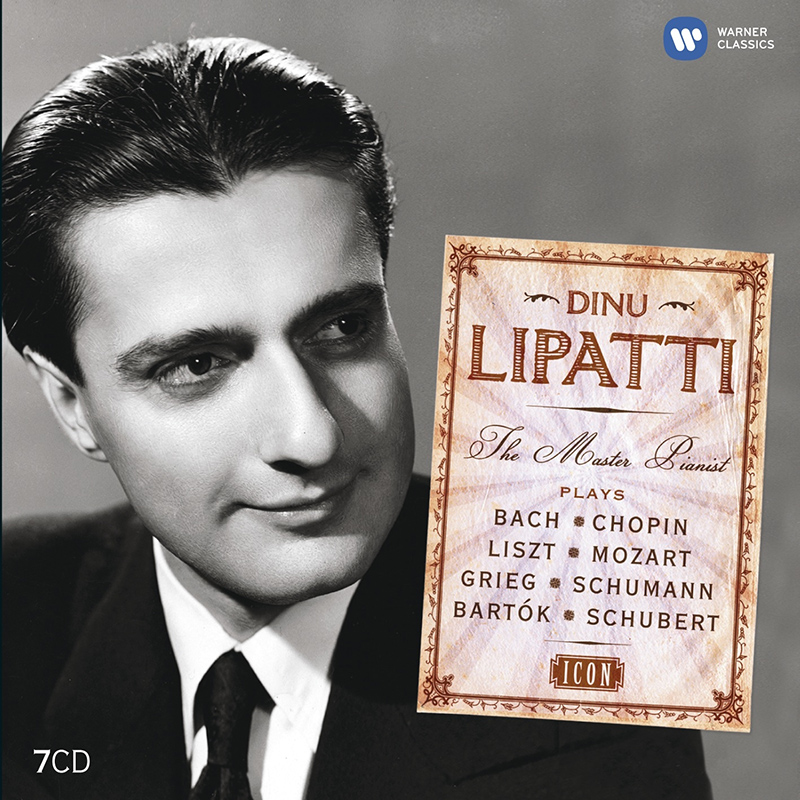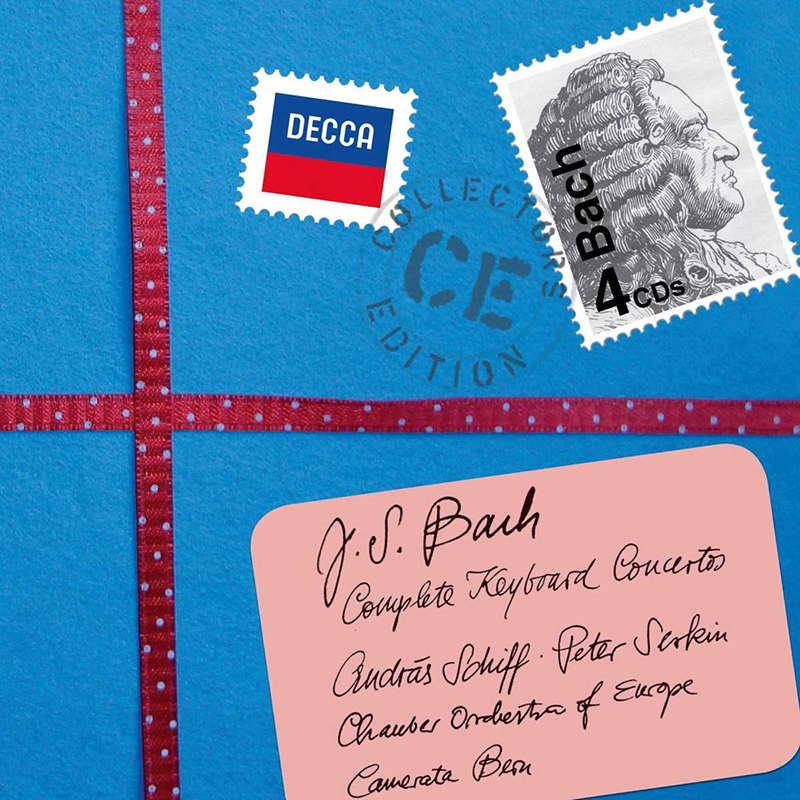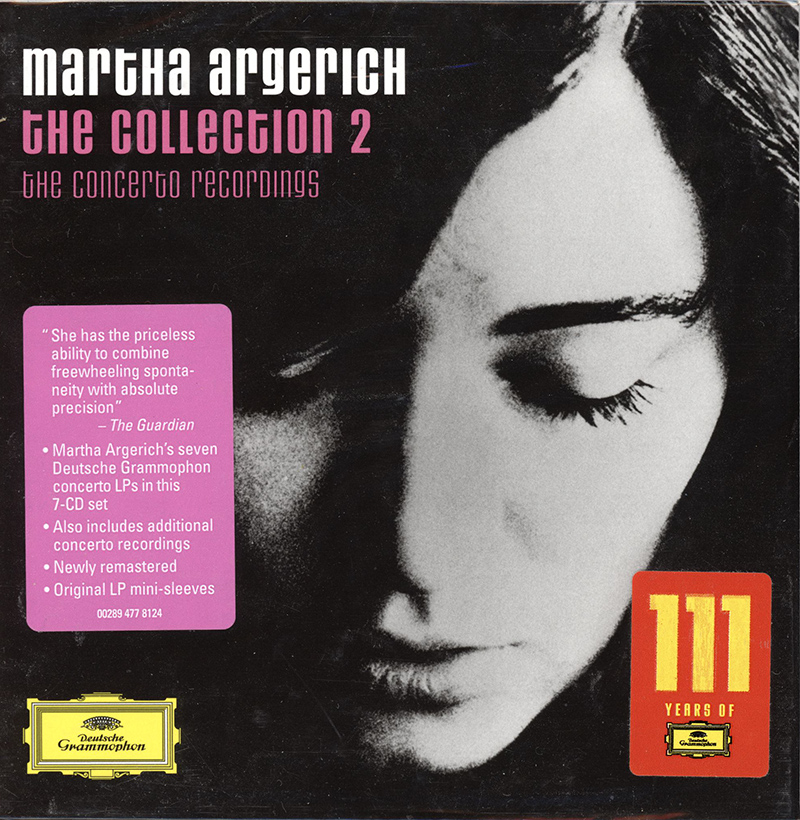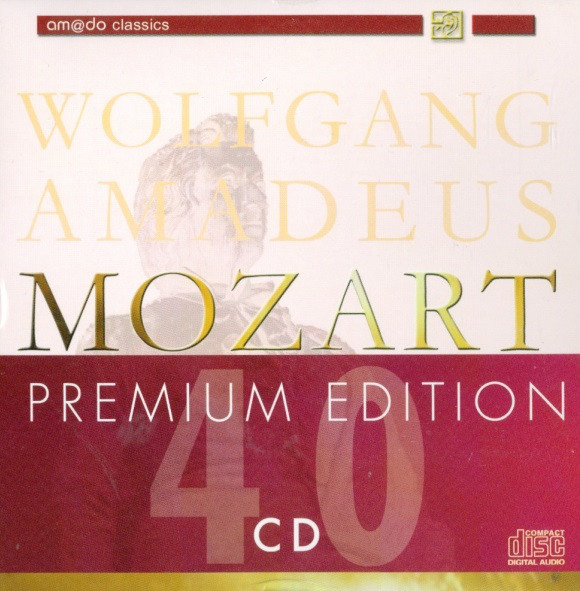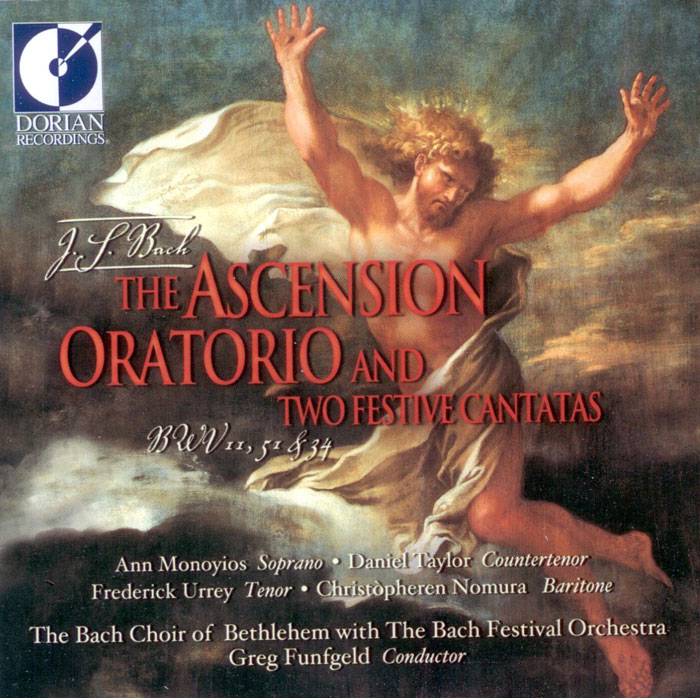Logowanie
KOLEKCJE!
BACH, CHOPIN, LISZT, MOZART, GRIEG, Dinu Lipatti, Otto Ackermann, Ernest Ansermet
The Master Pianist
PROKOFIEV, CHOPIN, TCHAIKOVSKY, SCHUMANN, BEETHOVEN, Martha Argerich, Claudio Abbado, Giuseppe Sinopoli
The Concerto Recordings
The Collection 2
Jakość LABORATORYJNA!
ORFF, Gundula Janowitz, Gerhard Stolze, Dietrich-Fischer Dieskau, Deutsche Oper Berlin, Eugen Jochum
Carmina Burana
ESOTERIC - NUMER JEDEN W ŚWIECIE AUDIOFILII I MELOMANÓW - SACD HYBR
Winylowy niezbędnik
ClearAudio
Essence MC
kumulacja zoptymalizowana: najlepsze z najważniejszych i najważniejsze z najlepszych cech przetworników Clearaudio
Direct-To-Disc
PIAZZOLLA, ChamberJam Europe
Tangos del Ángel y del Diablo
Direct-to-Disc ( D2D ) - Numbered Limited Edition
BACH, The Bach Choir of Bethlehem, The Bach Festival Orchestra, Greg Funfgeld
The Ascension Oratorio BWV 11 and two Festive Cantatas BWV 51 & BWV 34
- The Ascension Oratorio
- Cantata BWV 11 Lobet Gott in seinen Reichen
- 1. Chorus: Lobet Gott in seinen Reichen >>> Posłuchaj fragmentu <<<
- 2. Recitative (Evangelist): Der Herr Jesus hub seine Hände auf
- 3. Recitative (Bass): Ach, Jesu, ist dein Abschied schon so nah? >>> Posłuchaj fragmentu <<<
- 4. Aria (Alto): Ach, bleibe doch, mein liebstes Leben >>> Posłuchaj fragmentu <<<
- 5. Recitative (Evangelist): Und ward aufgehoben zusehends
- 6. Chorale: Nun lieget Alles unter dir
- 7. Recitative (Tenor and Bass): Und da sie ihm nachsahen >>> Posłuchaj fragmentu <<<
- 8. Recitative (Alto): Ach ja! so komme bald zurück
- 9. Recitative (Evangelist): Sie aber beteten ihn an
- 10. Aria (Soprano): Jesu, deine Gnadenblicke
- 11. Chorale: Wenn soll es doch geschehen >>> Posłuchaj fragmentu <<<
- Cantata BWV 51 Jauchzet Gott in allen Landen!
- 12. Aria (Soprano): Jauchzet Gott in allen Landen!
- 13. Recitative (Soprano): Wir beten zu dem Tempel an
- 14. Aria (Soprano): Höchster, mache deine Güte
- 15. Chorale: Sei Lob und Preis mit Ehren >>> Posłuchaj fragmentu <<<
- 16. Aria (Soprano): Alleluja! >>> Posłuchaj fragmentu <<<
- Cantata BWV 34 O ewiges Feuer, o Ursprung der Liebe
- 17. Chorus: O ewiges Feuer, o Ursprung der Liebe
- 18. Recitativo (Tenor): Herr, unsre Herzen halten dir
- 19. Aria (Alto): Wohl euch, ihr auserwählten Seelen
- 20. Recitativo (Bass): Erwählt sich Gott die heilgen Hütten
- 21. Chorus: Friede über Israel
- The Bach Choir of Bethlehem - choir
- The Bach Festival Orchestra - orchestra
- Greg Funfgeld - conductor
- BACH
Nagranie o szczególnych walorach audioifilskich - 24BIT
The three cantatas on this recording are superlative examples of Bach's mature compositional style. Cantata 51 was composed in 1730, Cantata 11 in 1735, and Cantata 34 in its final form - sometime after 1745. Bach gave the title "Oratorium" to three works composed between 1734 and 1738. These extended cantatas were prepared for performance on the principal festivals celebrating key events in the life of Christ; Christmas, Easter, and Ascension. But these oratorios are not of the type produced by such composers as Carissimi, Scarlatti, Handel, and others. Instead, they take as their model the so-called "oratorio" passions, such as his own St. John and St. Matthew Passions, in that they are substantially based on the Biblical narrative of the respective celebration. For the Christmas/Epiphany season of 1734-35, Bach composed a cycle of six cantatas to which he gave the collective title Oratorium Tempore Nativitis Christi (BWV 248). During the following four months, he composed an Ascension cantata with the title Oratorium Festo Ascensionis Christi (BWV 11). About three years later, probably in 1738, he reworked the Easter cantata he had originally written in 1725 and gave it the title, Oratorium Festo Paschatos (BWV 249). These three Oratorios, together with his three settings of the Passion (Matthew, Mark and John, BWV 244-245, 247), witness to Bach aligning himself with the particular Lutheran tradition of composing "Historia," that is, musical settings of the Biblical narratives associated with the birth, death, resurrection and ascension of Christ. Bach's notable predecessor was Heinrich Schiitz, who composed birth (BWV 435), passion (The Seven Last Words, Matthew, Luke, and John Passions, BWV 478-481), and resurrection (BWV 50) Historia, though he did not apparently compose a setting of the ascension narratives. … - Robin A. Leaver ©2001 Westminster Choir College of Rider University, Princeton, NJ President of the American Bach Society
